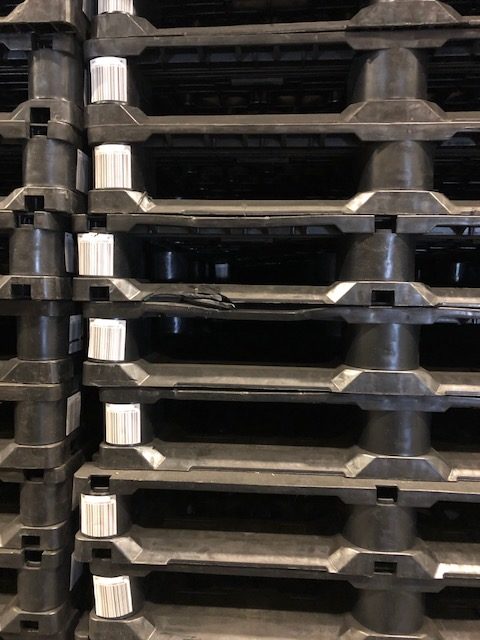Over 80 percent of U.S. consumers say they would buy from a company that advocated for a cause they cared about and 75 percent say they would refuse to purchase from a company that supported a cause they disagreed with. Americans are increasingly making statements with their purchases. They want to be sure that the food on their plate contains exactly what was printed on the label, that the clothing on their back was made by adults paid a working wage, and that the food they feed their pets is free of contamination. It is one of the great underappreciated ironies of history that consumers’ growing concern with ethical sourcing has coincided with a globalization of supply that makes it difficult for even the most conscientiously managed supply chains to be sure their ingredients and components were ethically obtained.
Nevertheless, an ethical supply chain matters for many reasons. It affects consumer perception, demand, and trust, and ensuring your goods are sourced in an ethical way helps your company avoid expensive fines and recalls. Ethical supply chains are simply good business in the long term.
What Is an Ethical Supply Chain?
 The subject of ethics is famously abstract; any freshman student of philosophy can explain the headaches of ethical conduct at length. Fortunately, the world of logistics is concrete and it is possible to define an ethical supply chain, which can be reduced to four main components:
The subject of ethics is famously abstract; any freshman student of philosophy can explain the headaches of ethical conduct at length. Fortunately, the world of logistics is concrete and it is possible to define an ethical supply chain, which can be reduced to four main components:
- Sustainable Sourcing: The materials from which products are made need to do little or no damage to the environment, the workers that harvest them, and the productivity of the region they come from. For example, if growing a particular crop requires so much water that the demand degrades the local environment, then the source is plainly not sustainable.
- Sustainable Production: Not only should products be sustainably sourced, but they should also be sustainably processed. Production methods should waste as little water and materials as possible and should plan for the responsible disposal of waste.
- Safe Sources: In 2007, sickness and death among pets in North America, Europe, and South Africa were linked to protein contaminated with melamine produced by a single supplier in China. In 2008, a similar problem with milk products and infant formula was linked to several infant deaths. The cause was traced back to suppliers that had adulterated their product with melamine to pass protein tests.
- Ethical Labor: A growing concern for many consumers is the plight of those who grew or harvested a product’s ingredients or who made the product itself. Consumers are increasingly recognizing that their buying habits affect the conditions of workers across the globe.
An ethical supply chain must ensure its practices meet ethical standards at every level.
Philanthropy is also frequently presented as an ethical business practice, and while it is good form to share the benefits of a profitable business with employees and the communities that make that business possible, philanthropy alone cannot build an ethical supply chain or an ethical business. An ethical supply chain must ensure its practices meet ethical standards at every level, from harvest of the raw material to production and transportation to the final sale of the product. This is a challenging task that relies heavily on monitoring and transparency.
How to Build an Ethical Supply Chain
 Creating an ethical supply chain isn’t easy. It requires sourcing ingredients, components, and raw materials only from vendors that hold themselves to ethical standards. Often, finding suppliers that can give a thorough accounting of the sources of their products is a challenge. Many companies exert only limited control over their vendors, who may change their practices to protect their profits without informing their customers. As a result, building an ethical supply chain must begin within a company’s own logistics network. Carefully collecting data can help a company protect themselves and their customers from unethical processes and sourcing. Collected data can also be used to create efficiencies that make the supply chain more sustainable, such as by increasing truck loading efficiency and maximizing warehouse space.
Creating an ethical supply chain isn’t easy. It requires sourcing ingredients, components, and raw materials only from vendors that hold themselves to ethical standards. Often, finding suppliers that can give a thorough accounting of the sources of their products is a challenge. Many companies exert only limited control over their vendors, who may change their practices to protect their profits without informing their customers. As a result, building an ethical supply chain must begin within a company’s own logistics network. Carefully collecting data can help a company protect themselves and their customers from unethical processes and sourcing. Collected data can also be used to create efficiencies that make the supply chain more sustainable, such as by increasing truck loading efficiency and maximizing warehouse space.
The ability to confirm a product’s source and follow it through the logistics system allows for a proactive approach to building an ethical supply chain. It increases a company’s ability to police its vendors and their conduct and can show consumers that it takes their safety and its product quality seriously. Perhaps surprisingly, the data capture technology that enables this is available at a relatively inexpensive price.
That technology is Radio Frequency Identification (RFID) tracking, and while it has been around for some time, RFID chips are still not quite economical enough for use on individual product packages. However, they can be placed on durable, reusable plastic pallets, where they will last for the lifespan of the pallet. Using RFID-enabled plastic pallets in conjunction with RFID readers at loading docks equips a supply chain to track products throughout the logistics system and enables a more rapid response when unethical sourcing is discovered or a recall is necessary.
A high-quality pooled plastic rental pallet exists in a closed-loop system where it is recycled directly into another plastic pallet when it reaches the end of its lifespan.
As well as contributing to data collection, plastic pallets have another ethical advantage: they’re recyclable. Traditional wood pallets deplete a natural resource–our forests–and ultimately end up in landfills. Even reusable wood block pallets are disposed of when they are no longer fit for use. A high-quality pooled plastic rental pallet, on the other hand, exists in a closed-loop system where it is recycled directly into another plastic pallet when it reaches the end of its lifespan.
While plastic platforms do not create an ethical supply chain on their own, they are an important first step that can be used to generate data that can support the process of developing such a supply chain. Tracking-enabled plastic pallets empower companies to better control their own supply chain and to detect vendor non-compliance, and they provide a basis to enforce vendor compliance or to switch vendors.
The iGPS pallet pool offers a durable, RFID-equipped plastic pallet that helps support an ethical supply chain through data tracking. To switch to a rental pallet that gives you greater control over your logistics, give our team a call at 1-800-884-0225, email a specialist at switch@igps.net, or visit our contact page.
Image 1: Unsplash User: sydney Rae
Image 2: Unsplash User: Joshua Lanzarini
Image 3: Unsplash User: chuttersnap



